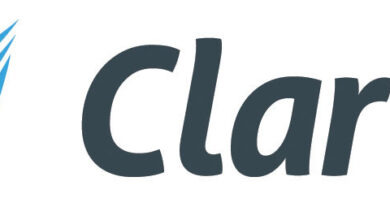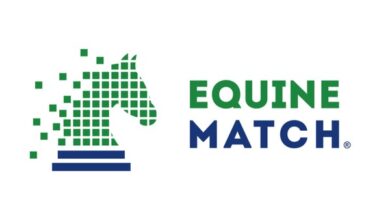What are the Best Certifications in Business Analytics

Introduction
In the data-driven world, firms are now heavily dependent on powerful analytics to uncover their patterns, ensure the right decision-making, and propel the growth of the business. As a result, the industry continues to demand certificates to prove a person’s knowledge in business data analytics, and this presents an opportunity for a professional who is aspiring to advance their career in this field. The abundance of certifications is definitely a welcoming challenge. However, this makes it even harder to choose which one is credible and the best among all.
Best Certifications in Business Analytics
Entry Certificate in Business Analysis
The ECBA certification sponsored by the International Institute of Business Analysts could be the best course that entry-level business analysts can choose, and is one of the best Certifications in Business Analytics. A professional must have a minimum of 21 hours worth of professional training credits achieved over the last four years to pass the exam. Qualification is by a performance exam. Different from those other credentials, the ECBA never requires renewal, positioning it as a starting point for a professional career certification. Moreover, candidates with the initial unsuccessful test results are allowed to take and pass the exam again.
CAP Certification
CAP certification means that you have been able to articulate using data to discover crucial information and take them into consideration when making a business decision. The basic requirement for the certification is that the candidate must hold a higher degree and should have a minimum of five years’ experience in the position of business analyst, or should be a degree holder in a related field plus seven years of related experience. INFORMS Annual Meeting will be held this year in 2023. There may be an exam fee, but discount options for INFORMS students are offered, since the organization is an esteemed international association of scholars and analytical professionals.
Certification of Competency in Business Analysis
The level 2 of IIBA certification which is called the Certification of Competency in Business Analysis (CCBA), requires the candidates to have 3750 hours of business analysis work records in line with the IIBA’s Business Analysis Body of Knowledge (BABOK) guide within the past seven years. Besides this, candidates need to have 900 hours in feeding almost all of the six BABOK knowledge areas or 500 hours in feeding almost all of these areas. On that note, the prerequisite too is that the candidates complete a professional development training of a minimum of 21 hours within the last four years and provide two professional references as well. CCBA exam is composed of 130 semi-structured multiple choice type questions, wherein a critical thinking implication is pivotal. A vendor neutral test, it evaluates candidates on the basic principles, fundamental competencies, essential techniques, key ideas and all six domains delimited in the BABOK.
CBAP Certification
(CBAP certification IIBA plateau) is ranked as the highest level of business analysis competence making it stand as one of the best Certifications in Business Analytics. Candidates should total at least 7,500 hours, which is close to two years, and there should be at least 35 hours of training in recent Professional Development; with competence testing being at least four of the six BABOK Guide Knowledge Areas. Moreover, references of two professionals from their related fields are required in order to confirm their competence. The exam which contains 120 multiple choice questions assesses the ability to apply the business analysis principles enrolled in the BABOK. CBAP accomplishment shows the commitment to winning and so it increases one’s employment opportunities in the area in a big way.
Certification in Business Data Analytics
The latest authentication program of the IIBA brings to the fore the business analyst’s ability to perform analyses that highlight projects aiming to reinforce business analytics and initiatives. With the CBDA, the candidates are obliged to identify, obtain, analyze and interpret data as well as to write reports based on the information obtained. This differs from traditional tests that only ask multiple choice questions. Additionally, candidates need to be able to not only show but also explain how data can point to the correct decision and strategic plans for a particular organization/business. The exam gives the students an opportunity to have a second chance if unsuccessful to start with; however, the application of the renewal fees would be charged.
Certified Expert Level Business Analyst
The first component is the follow-up course and certification within the IQBA framework that includes completing the path of the Certified Advanced Level Business Analyst exam which is an online-based performance. In-person training and examination centers can be seen almost everywhere, but the reach to all could also be an issue. The high-level expert certifications, such as Certified Expert Level Business Analyst (CELBA) credentials, are also available through remote means. The larger the number of certifications a certificate professional has from different associations, the faster he/she can potentially advance through the career with increased salary prospects and to positions such as leadership or executive posts.
Conclusion
Best Certifications in Business Analytics bring incomparable benefits to skilled workers navigating a business space with data as a key competency. The qualifications here are many but prominent are Certified Analytics Professional (CAP), Certified Business Analysis Professional (CBAP), and others which carry the highest esteem recognized widely in the world. These certifications are not only just validation of acquired knowledge but also provide career opportunities, high earning potential as well as a credit-worthy status in the given field. By securing these certifications, specialists will have the opportunity to demonstrate the knowledge required in essential parts of the business analysis which include data analysis, business intelligence and decision-making. This way, they will be prepared to assume the crucial positions in the competitive dynamics of the business analytics field.
FAQs
1. What is the salary of an experienced Business Analyst in India?
The average salary of an experienced Business Analyst in India is 10 lakhs.
2. What are the qualifications of a Business Analyst?
As a Business Analyst, you should hold a bachelor’s degree in business, economics, finance, IT or any other relevant fields.
3. What are the tools required by Business Analysts?
Most of the Business Analysts leverage the tools like Tableau, LucidCharts, Infogram, Spotfire, SmartDraw etc.
4. Is Python important for a Business Analyst?
Yes, Business Analysts generally use programming languages like Python and R
5. Why is Business Analysis important?
Business Analysis is important for an organization as it helps in decision making by evaluating data and streamlining the business processes.



